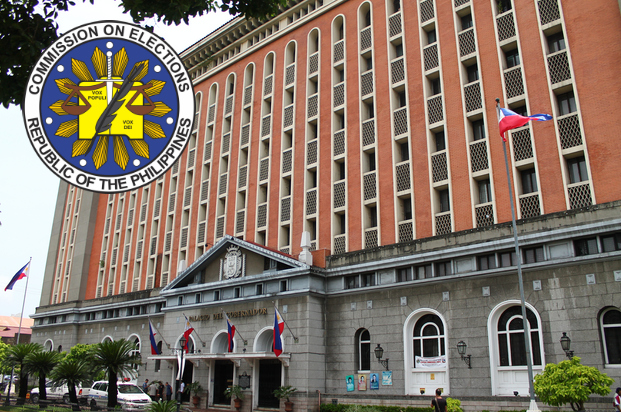Headline
COMELEC: Hybrid voting system to cost P16B, other options cheaper

The COMELEC main office located at the Palacio del Gobernador at the corner of General Luna St. and Andres Soriano Jr. Avenue in Intramuros, Manila. (Photo courtesy of COMELEC)
MANILA – During an Inquirer forum, Commission on Elections (COMELEC) Chair Andres Bautista disclosed that the proposed hybrid voting system for next year’s national elections would cost about P16 billion which was significantly more expensive than refurbishing precinct count optical scan (PCOS) machines or leasing optical mark readers (OMRs).
Should the hybrid voting system, which was called precinct automatic tallying system (PATAS), be used in the coming elections, the country would then resort back to manual voting and counting but with automated transmission of ballots.
For this, PATAS would require laptops, projectors, cameras and about 900,000 public school teachers on the board of election inspectors (BEIs) for the 100,000 polling precincts.
Hence, PATAS’s cost may reach up to P30 billion.
“Our preliminary assessment … [is that] going hybrid will be more expensive than both [PCOS and OMRs],” Bautista said in the forum.
“You might not just have three but four BEIs… Also you have to factor in the watchers. You’re going to have more watchers and the cumbersome process because it’s like manual [elections],” he added, pointing out that there were only 630,000 teachers available for BEIs.
Moreover, the COMELEC admitted that PATAS was still ‘raw’ and needed to be improved.
“To be honest, if you ask me, hybrid has some promising features but it is still raw and needs further improvements,” Bautista said in a separate interview.
“Look at also the cost, it seems that it is not the cost-efficient choice at the moment. But as I said again, we should give the proponents the opportunity to present as well what they think the cost of the system is,” he added.
Because of this cons, the COMELEC has then reconsidered simply refurbishing 82,000 PCOS machines and leasing 23,000 and 70,977 OMRs especially since the national election’s nearing.
“I think there were several commissioners who really want, as much as possible, to use already what we have, which again makes commercial sense. That’s why we are trying to figure out how we can make sure that we preserve that option moving forward,” Bautista said.
The COMELEC, however, has yet to decide which option to choose for next year’s elections. It will then present the three options to the House of Representatives committee on suffrage and electoral reforms this week and will come up with a decision on July 31.
“I don’t think we can say at this point. But provided that we choose a system, all three options can still be used,” Bautista said.
“All efforts are geared toward [a credible elections].”
Committee vice chair Caloocan Rep. Edgar Erice, for his part, has not expressed support on PATAS as he claimed that it was ‘illegal’ and the cost was ‘astronomical.’





















